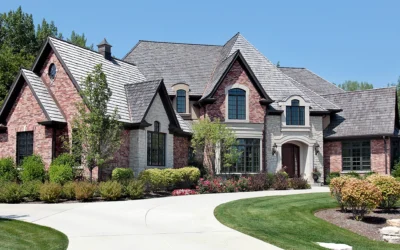At Duncan Legal, PC, we believe your estate plan is far more than a set of legal documents — it’s a reflection of who you are, the values you hold dear, and the traditions that define your family.
As 2025 unfolds, more families are finding meaning in blending their cultural heritage with modern legal tools. Done thoughtfully, estate planning can preserve not only your wealth but your story — ensuring that your values, customs, and legacy are carried forward for generations to come.
Why Cultural Beliefs Matter in Estate Planning
Across all cultures, there are deeply rooted beliefs about inheritance, family responsibility, and how wealth should pass from one generation to the next. For some, it’s about keeping property or land in the family. For others, it’s about ensuring fairness among children or supporting aging parents.
When an estate plan doesn’t align with these values, the results can be painful — confusion, family conflict, or even legal disputes. Taking the time to discuss and document your beliefs helps your attorney craft a plan that not only meets legal standards but feels emotionally and culturally right.
A meaningful estate plan becomes more than a tool for distributing assets — it becomes a bridge connecting generations through shared values and understanding.
Key Legal Considerations in 2025
Estate laws evolve over time, and 2025 is no exception. A few updates worth noting include:
- The federal estate and gift tax exemption remains $13,990,000 per individual in 2025.
- Beginning January 1, 2026, under the One Big Beautiful Bill Act (OBBBA), the exemption will increase to $15,000,000 per person, with annual inflation adjustments thereafter.
- Some states are also updating trust and inheritance laws to reflect modern family structures and better protections for beneficiaries.
Because these laws can change and differ from state to state, it’s important to work with an attorney who understands both your goals and your jurisdiction’s rules. A flexible, values-driven plan helps ensure your legacy remains secure regardless of how laws shift in the future.
How to Infuse Cultural Meaning Into Your Estate Plan
1. Health Care & Advance Directives
Your beliefs often influence how you view medical treatment and end-of-life care. A Health Care Power of Attorney allows someone you trust — and who understands your cultural and spiritual values — to make medical decisions for you if you’re unable to do so.
Pair this with a Living Will or Advance Directive, where you can specify your wishes about life-sustaining treatment, comfort care, and religious or ceremonial preferences. Having these discussions early prevents confusion later and ensures that your personal beliefs are respected.
2. Disposition of Remains
For many, cultural and religious traditions shape how loved ones say goodbye. A Disposition of Remains document lets you record your wishes regarding burial, cremation, donation, or special ceremonies.
You can also note meaningful details like music, readings, or memorial customs — guiding your family in honoring your life in the way that feels most authentic.
3. Wills, Trusts, & Bequests
An estate plan is a powerful tool to carry your cultural and emotional legacy forward. Bequests can include family heirlooms, symbolic items, or instructions for ongoing traditions.
A trust can ensure that family property remains within the lineage, provide ongoing support for elders or loved ones, and preserve cultural expectations such as shared land or annual family gatherings. Appointing a trustee who understands your family’s traditions ensures that your wishes are carried out faithfully.
4. Communication & Coordination
The most meaningful plans are built on open dialogue. Discuss your wishes early with family members so they understand your intentions and the “why” behind your choices.
At Duncan Legal, PC, we encourage clients to share both financial goals and personal traditions — from heritage stories to religious observances — so that every element of the plan reflects who they truly are.
As your family grows or circumstances change, your plan should evolve too. Regular updates ensure that it remains aligned with both your life and your legacy.
Examples of Culture-Driven Planning
Here are a few ways families bring cultural values into their estate plans:
- A family who views farmland as sacred might create a family trust that prevents its sale outside the lineage, while allowing current heirs to receive income from it.
- A family who values respect for elders might include a “care stipend” clause to ensure continued financial support for aging parents or grandparents.
- Some families set aside funds in a will or trust to support cultural or religious ceremonies after passing, keeping traditions alive for future generations.
- In matrilineal cultures, an estate plan might direct assets through the maternal line to preserve family customs and history.
Each plan is unique — what matters most is that it reflects the heart of your family story.
When Culture and Planning Come Together
When your estate plan honors your culture, it does more than protect your assets — it preserves your legacy, strengthens family bonds, and ensures your loved ones feel connected to their roots.
At Duncan Legal, PC, we take pride in helping Colorado families design personalized estate plans that blend modern legal protections with deep personal meaning. Whether your priorities are tax efficiency, family harmony, or preserving your cultural traditions, we’ll help ensure your plan reflects what matters most — in both law and spirit.
Plan for the future and protect your family’s peace of mind.
Visit Us: 1610 Wynkoop St., Suite 200, Denver, CO 80202
Call Us: (720) 506-2536
Learn More: www.duncanlegal.com




